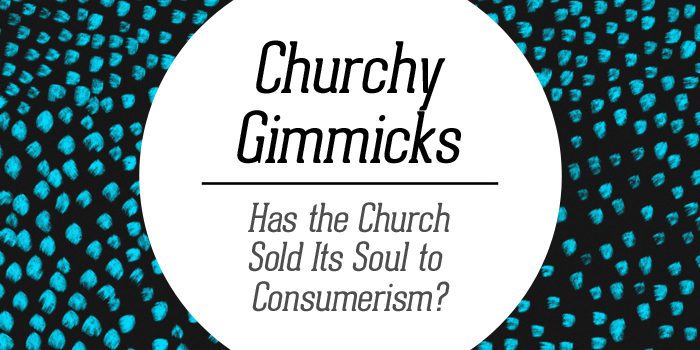
The Lord’s Supper – A means of grace? (Richard C. Barcellos)
The following column is from the new issue of Credo Magazine, “Churchy Gimmicks: Has the Church Sold Its Soul to Consumerism?”
If you are like me, you have probably read Reformed theologians on the Lord’s Supper claiming it to be a means of grace for believers and more than a memory. It is what the Reformed confessions and catechisms confess to be biblical. Simply because it is confessed to be such, however, does not mean that it is. It simply means that those who subscribe to these confessions believe it to be so. For example, the Second London Confession of Faith of 1689 says:
The supper of the Lord Jesus was instituted by Him the same night wherein He was betrayed, to be observed in His churches, unto the end of the world, for the perpetual remembrance, and shewing forth the sacrifice of Himself in His death, confirmation of the faith of believers in all the benefits thereof, their spiritual nourishment, and growth in Him, their further engagement in, and to all duties which they owe to Him; and to be a bond and pledge of their communion with Him, and with each other (30:1; emphases added).
 If you read the sections of the confession quoted above, you can see that the Lord’s Supper is confessed to be more than a memory. Though there is a memorial aspect to the Supper, it is more than that. It confirms faith, spiritually nourishes, causes growth, etc. This is the language of means of grace. But what are means of grace and is the Supper a means of grace?
If you read the sections of the confession quoted above, you can see that the Lord’s Supper is confessed to be more than a memory. Though there is a memorial aspect to the Supper, it is more than that. It confirms faith, spiritually nourishes, causes growth, etc. This is the language of means of grace. But what are means of grace and is the Supper a means of grace?
I define means of grace as the delivery systems God has instituted to bring grace–that is, spiritual power, spiritual change, spiritual help, spiritual fortitude, spiritual blessings–to needy souls on the earth. Grace comes from our Father, through the Son, by the Spirit ordinarily in conjunction with the ordinary means (i.e., the Word of God, prayer, baptism, and the Lord’s Supper).
The text that I think best illustrates that the Lord’s Supper is a means of grace is 1 Corinthians 10:16. “The cup of blessing which we bless, is it not the communion of the blood of Christ? The bread which we break, is it not the communion of the body of Christ?” (NKJV). The point being made from this text is that the cup and the bread are signs that signify present participation or present communion in the present benefits procured by Christ’s blood and body. Grace procured by what Christ did for us (i.e., redemption accomplished) becomes ours through the Lord’s Supper (i.e., redemption applied). Communion of the blood and body of Christ means spiritual nourishment is brought to souls. It is present participation in the present benefits of Christ’s death for those properly partaking. In other words, the Lord’s Supper is a means of grace. Paul brings up the nature of the Lord’s Supper as a means of grace in this text to argue against participating in pagan sacrificial meals (cf. 1 Cor. 10:21), which is idolatry (cf. 1 Cor. 10:14). As Charles Hodge asserts in his commentary on 1 Corinthians, “It is here assumed that partaking of the Lord’s Supper brings us into communion with Christ. If this be so, partaking of the table of demons must bring us into communion with demons. This is the apostle’s argument.” Any view of the Supper as only horizontal or memorial does not fit the context or prove the point of Paul’s argument.
Richard C. Barcellos is pastor of Grace Reformed Baptist Church in Palmdale, CA. He is the author of The Lord’s Supper as a Means of Grace: More Than a Memory.
Read other articles in the new issue of Credo Magazine today!
The Evangelical church in the twenty-first century has in many ways absorbed the consumeristic mentality that is so prevalent in the culture. Churches approach worship as if they were selling a product and the attendee were the consumer. Since the product is up for sale, churches must show that their product is more entertaining than anything else the world has to offer. Therefore, churchy gimmicks are the name of the game. Whatever keeps people coming back for more takes first priority and becomes the controlling principle for all things church-related. The preaching must be relevant, the music must entertain, and church events must keep people on the edge of their seat. If the church doesn’t sell itself, then it will be out of business.
In this issue of Credo Magazine we hope to pour an ice-cold bucket of water in the face of the church. No longer can we turn to the culture to decide what the church should be and do. God, his gospel, and his bride are not products to be sold. And those who walk through the church doors on Sunday morning are not customers to entertain. Such an approach makes man the center and treats the church like a business. In contrast, our aim in this issue is to draw church-goers and church leaders back to Scripture, which we believe should be our final authority and guide for worship. In doing so, we must recover the ordinary means of grace that God uses to equip the saints and transform us into the image of Christ.
Contributors include: Brian Cosby, Dennis Johnson, Harry Reeder, Mark DeVine, T. David Gordon, Heath Lambert, and many others.

